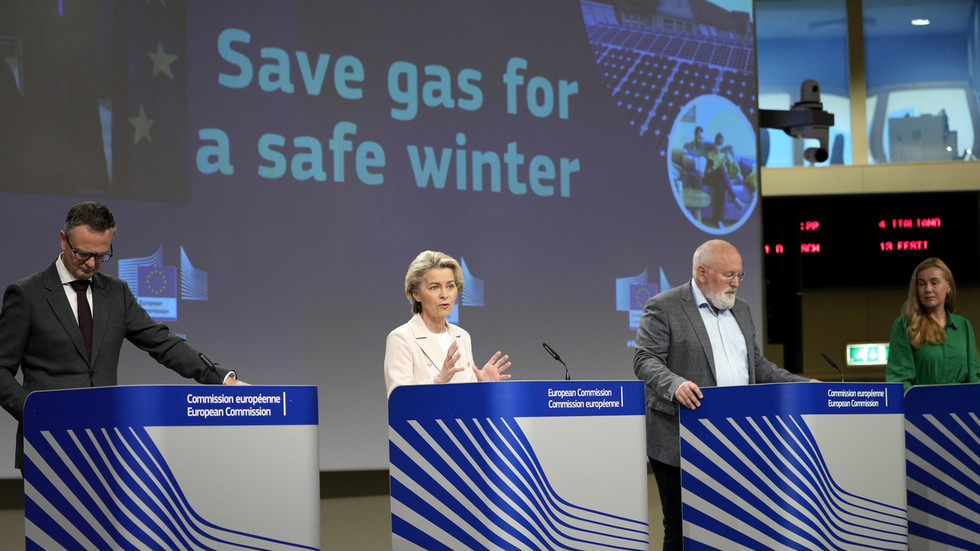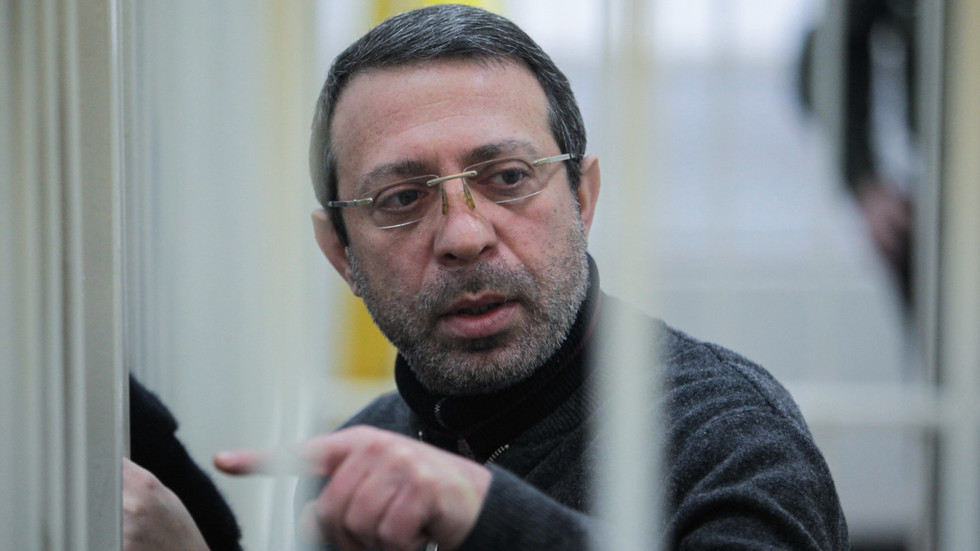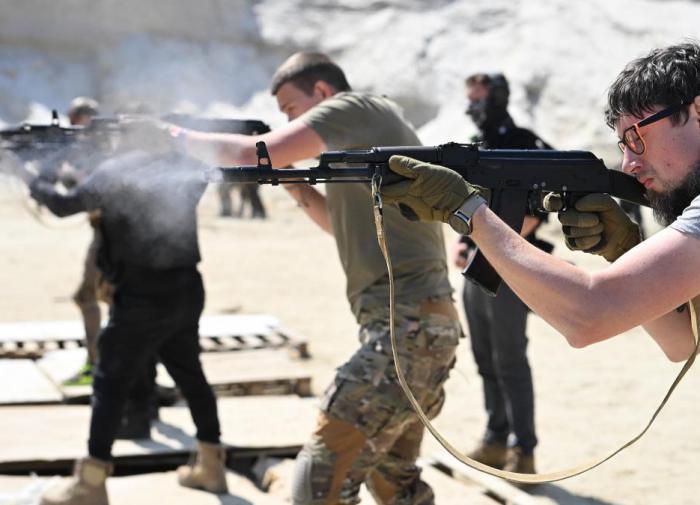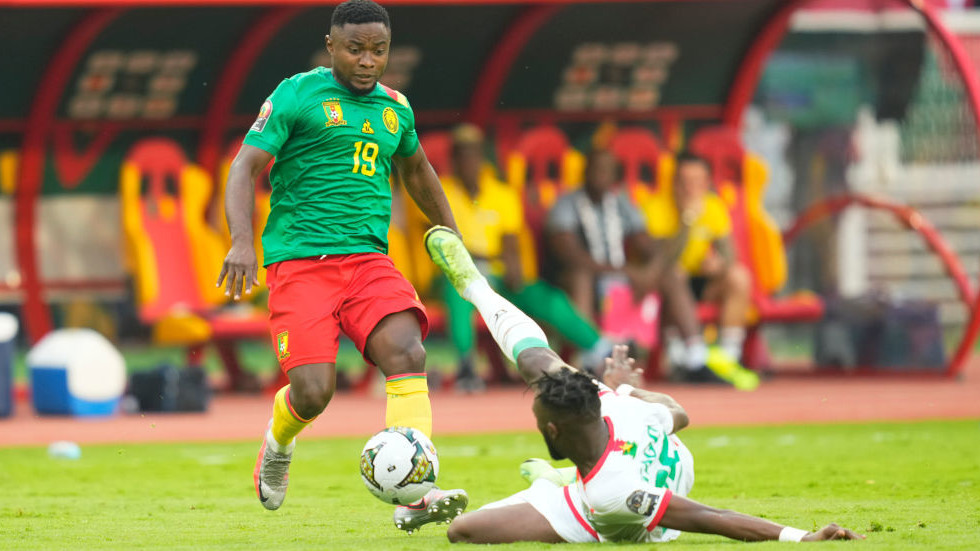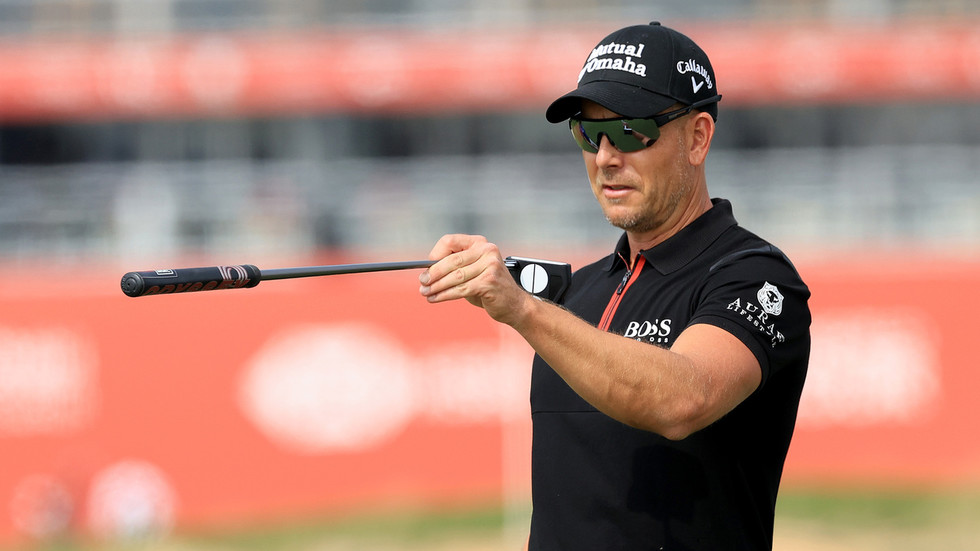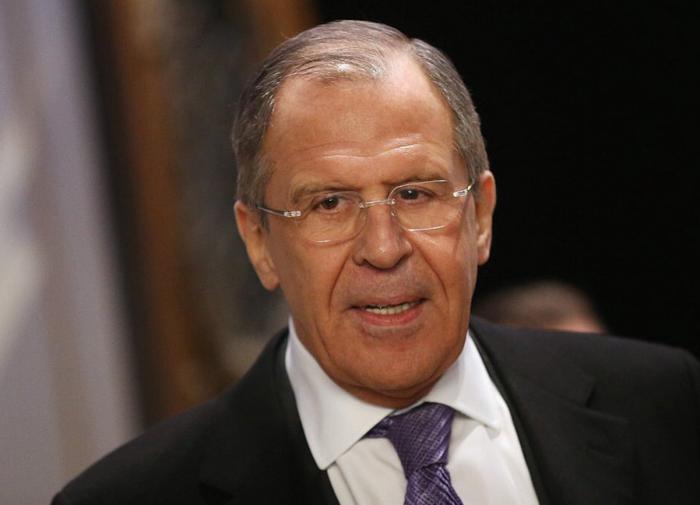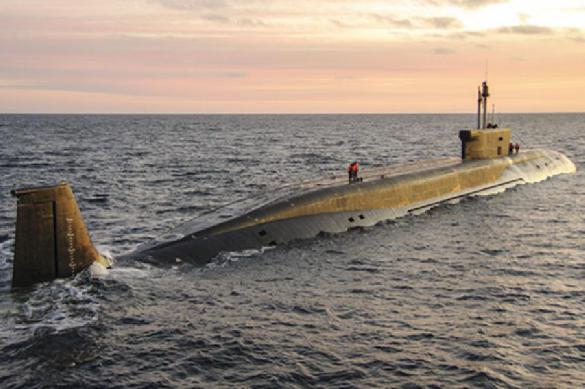[ad_1]
Preface by Alexander Mercouris
We publish this lengthy article in full not simply because intellectually talking it’s one thing of a tour de power however as a result of it’s filled with distinctive insights each about Russia and in regards to the overseas coverage of the US and the strategies utilized by a number of the supporters of that overseas coverage.

Earlier than commenting on a number of the factors made within the article we might make one warning:
There have to be some doubt in regards to the true extent of Putin’s familiarity with the three philosophers mentioned within the article.
Opposite to his picture within the West, Putin is a extremely educated and well-read man who is understood to learn educational works of historical past and to love classical music.
Whether or not he has the time or the inclination to familiarise himself with the very advanced and troublesome materials contained within the works of the three philosophers mentioned on this article is one other matter. Extra seemingly Putin is aware of these philosophers from summaries offered by his advisers moderately than from private examine.
Placing that time apart, the article makes a legitimate and vital level – the philosophers Putin endorses are real mental heavyweights whose concepts don’t set out a program or blueprint for an aggressive, expansionist, ethnocentric, authoritarian, “messianic” Russia, as Western critics of Putin allege, however quite the opposite do the diametric reverse.
Because the article additionally says, the philosophers beneath dialogue have been extremely regarded within the West till Putin endorsed them. At that second – however not earlier than – their concepts abruptly turned “harmful” and “sinister”.
This brings us to our subsequent level. The article reveals how cynically the concepts of the three philosophers are being misrepresented in an effort to show the thesis of a harmful, aggressive and authoritarian Russia.
This form of misrepresentation is now now not the exception however the rule.
As a basic precept no citation of Putin’s or of some other outstanding Russian official or politician that seems within the Western media could be assumed to be true. Given the relentlessly hostile anti-Putin and anti-Russian agenda that now dominates Western commentary, any citation is nearly sure to be distorted both by means of mistranslation or by being taken out of context.
The state of affairs is now so unhealthy that even somebody as senior as the previous President of the European Fee will intentionally misquote phrases Putin informed him in personal dialog if he thinks he can get away with it. Not too long ago it has turn into clear that some quotes attributed to Putin have truly been invented by his Western critics.
What this text reveals is that this course of now extends not simply to residing Russians like Putin, however to Russian intellectuals who’re lengthy lifeless. It appears the phrases of any Russian, residing or lifeless, are actually truthful sport for these within the West who wish to persuade others that Russia poses a menace to the West.
This can be a very sinister improvement, which makes (and which is meant to make) an understanding with Russia all however unattainable. Be aware Dr. Grenier’s astute remark about this:
“Critics say that Russia just lately has turn into a nation full of hate. However how are Russian residents and President Putin himself to interpret the twisting (and what now we have seen above is simply the tip of the iceberg) of their very own phrases and their most cherished traditions in such an apparently spiteful and even violent means?”
That’s not nevertheless the worst of it.
Such a ruthlessly manipulative method to the phrases and concepts of individuals lengthy lifeless could be genuinely known as Orwellian.
Individuals who present such disrespect for fact are harmful. By participating in such cynical falsehoods they reveal the place the actual hazard to world peace comes from. In addition they expose who is admittedly accountable for the current disastrously unhealthy state of relations between Russia and the West.
It additionally by the way reveals that something folks like this say merely can’t be relied upon since fact for them has no worth save to the extent that it serves their political function. After they due to this fact say issues like “the Russian military is invading Ukraine” there isn’t any extra cause to consider them than once they say folks like Putin or Solovyov mentioned issues they didn’t in actual fact say.
Dr Grenier, the author of this text, is clearly conscious of this. One different means through which this text stands out is in its perception into the ideological and finally corrupt considering of these behind present US overseas coverage. Contemplate this fairly good summation on the finish of the article with its implicit warning of the incipient totalitarianism of present US considering:
“…….if America’s political excellent is as almost excellent as can ever be achieved on this ‘fallen world,’ then the factor is to hold on and win, thereby bringing the right good (that’s us!) to everybody.
Why hassle severely familiarizing oneself with a competing system? Clearly Brooks and Co. made no such effort. It was sufficient for them to know that Russia’s political excellent considerably differs from America’s: due to this fact it’s illegitimate, Q.E.D.
As Hannah Arendt wrote in The Origins of Totalitarianism, ‘The curious logicality of all isms, their simple-minded belief within the salvation worth of cussed devotion with out regard for particular, various components, already harbors the primary germs of totalitarian contempt for actuality.’
That America doesn’t truly dwell as much as its personal beliefs, as I’ve written right here beforehand, adjustments nothing for the ideologue. In spite of everything, each additional improve in America’s energy brings nearer the day when its actions (that are usually realist) and its speech (which is at all times democratic and idealist) can come into concord. Then historical past can really and eventually come to an finish.”
This model of the article initially appeared at Consortium Information. An earlier model of the article initially appeared at Johnson’s Russia Listing
What began the brand new Chilly Conflict? In line with the State Division, it was Russia’s unlawful violation of Ukraine’s sovereign borders. The Kremlin, for its half, insists it was a U.S.-facilitated coup in Ukraine which destroyed the constitutional order there, inflicting chaos and risks to Russian safety to which Russia had no alternative however to reply.
In line with educational overseas coverage “realists,” the trigger was the upcoming menace of Ukraine’s integration into an ever-expanding navy pact dominated by the US. In line with George Friedman, president of Statfor, the personal strategic intelligence agency, the Ukraine disaster itself is extra impact than trigger: the battle began in 2013 when the US determined Russia’s rising energy was turning into a menace.
And in accordance with Kiev, Russian President Vladimir Putin created the entire disaster. He invented the specter of Ukrainian so-called “fascism” and was motivated all through by a mixture of imperial ambition coupled with a concern of democracy.
It’s not my current aim to attempt to adjudicate among the many above claims. Regardless of their apparent variations, additionally they all share a standard trait: none present any clear route for tips on how to get out of this mess. It’s time to method it from a very totally different angle.
When the primary Chilly Conflict ended, Francis Fukuyama defined, extra in disappointment than in triumph, that the US’ mannequin of liberal democratic capitalism had received and that this was why “historical past” – the battle to search out the proper reply to the political query relating to the optimum type of society – had ended.
What had received, in actual fact, was a set of solutions to such key questions of political life because the origin and function of the state; what it means to be human; what it’s that each one people do, or ought to, try for. The traditional sources of the particularly American solutions to those questions are well-known: they’re the sources of liberal political thought as such.
Right here is one other factor well-known to the purpose of being cliché: since 2001, the top of historical past thesis has been repeatedly challenged by occasions. Really, Fukuyama’s thesis can’t be challenged by mere occasions, as a result of he by no means mentioned that unpleasantness would stop to be a part of the human expertise. He mentioned that people have been unlikely to give you a simpler and engaging compromise answer to the important thing political questions than the moderately boring set of solutions that make up the liberal, democratic capitalist world.
To those that level out that ISIS has disproven his “finish of historical past” thesis, Fukuyama may with good cause reply: “Properly, for those who discover that form of factor engaging, chances are you’ll settle for my congratulations.”
However I’m writing neither to defend nor to assault Fukuyama. I’m merely suggesting that we’re doing ourselves no favor by ignoring all solutions to the political query that differ from liberal orthodoxy. There could also be in liberalism and democracy and capitalism a lot that’s appropriate, however there’s each cause to suspect that now we have not but found the ultimate fact about both human beings or political man.
Fukuyama himself provided his personal critique: his skepticism in regards to the human materials is what made him set his sights so low. It’s not essentially a criticism of Fukuyama to level out that there are various on the planet as we speak who aspire to one thing apart from our world of comfy autonomy and the possession of rights within the purely Lockean sense.
Amongst those that so aspire are many within the Slavic world, with its roots in Japanese Orthodox Christianity; or the Chinese language sphere, with its Confucian heritage which is simply starting to awaken; and naturally the Center East. And that’s simply to call the teams the US has recognized as in dire want of a makeover.
Variety and Liberalism
The West, and particularly the US, has earlier than it a fateful alternative: ought to it search a “dwell and let dwell” co-existence of the liberal and non-liberal nations of the world, or ought to it attempt to make the remainder of the world liberal at gunpoint, and in that means show that historical past actually has lastly ended? Ought to we make the world protected for variety, or ought to we make the world uniform for the security of the US?
Within the Center East the selection has already been made. It’s to be made liberal and democratic at gunpoint. The large difficulties this has offered has satisfied the American get together of struggle, which seems to be within the majority, that it’s time to double down and check out more durable, not solely within the Center East, however now within the Slavic world as nicely.
This raises a vital query about variety and distinction. What’s it that makes a nation itself and never one thing else? Is it the presence of borders? Is it operating one’s personal elections utilizing one’s personal manpower? Clearly, it’s neither of these items, nor something like them.
To be one’s personal nation, to live on in actual fact, means precisely to proceed to understand over time one’s nationwide thought, that’s to say, as Ernst Renan put it (Qu’est qu’une nation?, 1882, as quoted by Hannah Arendt) “to protect worthily the undivided inheritance which has been handed down.”
That nations often borrow cultural content material from others is plain, and sometimes laudable. However it’s crucially vital, as American historian William Appleman Williams as soon as famous, who makes the selection of these borrowings. Are they tailored freely from the within, or are they forcefully imposed? The failure to know this latter distinction is what retains bringing about The Tragedy of American Diplomacy (additionally the title of Williams’s e-book).
When nations absolutely share the American liberal world view, these separate nations turn into, in a sure sense, now not absolutely “separate.” That is under no circumstances essentially a nasty factor. The nations of northern Europe don’t endure for probably the most half from their shut alliance with the US, together with within the cultural sense.
However right here’s the six trillion greenback query: is the US keen to countenance the existence, on a everlasting foundation, of different nice powers that don’t settle for liberal civilizational values as America defines them? I say different “nice powers” as a result of in the long term solely an amazing energy, or a protectorate of an amazing energy, can guarantee its personal continued existence.
The non-liberal standing of Russia has been offered just lately as a dire menace to the safety of each America and the world. In assist of this storyline, the Russian president has been related to thinkers from Russia’s previous who’re, supposedly, the supply of a fanaticism that justifies talking of Vladimir Putin and Russia (the 2 are melded collectively within the endlessly-repeated “Putin’s Russia”) in the identical breath as ISIS.
However the concepts of this non- or not-entirely-liberal Russia are under no circumstances all harmful. On the contrary, they provide a fruitful avenue for rethinking a few of our most cherished assumptions in regards to the nature of politics and the character of the worldwide order.
Then and Now
When communism was deserted within the late Eighties and early Nineteen Nineties, it turned obvious to considerate Russians and outsiders alike {that a} new idea of the state, a brand new idea of man, and a brand new public philosophy must be created.It was then, and stays as we speak, an open query whether or not the brand new Russian id would find yourself being an import from the West, one thing from the native vault of pre-Communist philosophical considering, or maybe a mixture of the 2.
As is perhaps anticipated from the nation that introduced the world Dostoevsky and Tolstoy, on the subject of philosophy, Russia has bought a deep bench.Within the months instantly following the February 2014 change of energy in Kiev, and the ensuing rising stress between Washington and Moscow, three Russian philosophers, solely two of them extensively identified exterior of Russia, got here to be more and more related to the identify of Vladimir Putin. The following interpretation of those philosophers on the pages of a number of of America’s most influential newspapers deserves to be thought of intimately.
Maria Snegovaya, a doctoral candidate in political science at Columbia College, initiated the dialogue with a March 2, 2014 article within the Washington Publish. Putin’s “pro-Soviet worldview,” Snegovaya wrote, is poorly understood:
“To get a grasp … one must examine what Putin’s most well-liked readings are. Putin’s favorites embody a bunch of Russian nationalist philosophers of early twentieth century – Berdyaev, Solovyev, Ilyin — whom he typically quotes in his public speeches. Furthermore, just lately the Kremlin has particularly assigned Russia’s regional governors to learn the works by these philosophers throughout 2014 winter holidays. The primary message of those authors is Russia’s messianic function in world historical past, preservation and restoration of Russia’s historic borders and Orthodoxy.”
Mark Galeotti, writing in International Coverage (“Putin’s Empire of the Thoughts,” April 21, 2014) additionally discovered fault with these identical three philosophers. “These three, whom Putin typically cites,” Galeotti writes, “exemplify and justify [Putin’s] perception in Russia’s singular place in historical past. They romanticize the need of obedience to the robust ruler — whether or not managing the boyars or defending the folks from cultural corruption — and the function of the Orthodox Church in defending the Russian soul and excellent.”
Lastly, David Brooks, writing for the New York Occasions (“Putin Can’t Cease,” March 3, 2014), likewise expressed alarm in regards to the affect of Solovyov, Berdyaev and Il’in. “Putin doesn’t solely quote these guys; he desires others to learn them,” Brooks wrote. Three most important concepts unify Solovyov, Il’in and Berdyaev’s work, Brooks wrote:
“The primary is Russian exceptionalism: the concept Russia has its personal distinctive religious standing and function. The second is devotion to the Orthodox religion. The third is perception in autocracy. Mashed collectively, these philosophers level to a Russia that could be a quasi-theocratic nationalist autocracy destined to play a culminating function on the world stage.”
Beneath the affect of those “guys,” Brooks continues, “The tiger of quasi-religious nationalism, which Putin has been using, could now take management. That will make it very onerous for Putin to cease on this battle the place rational calculus would inform him to cease.” Brooks concludes that Russia can now not be thought of a “regular” regime and “a Huntingtonian battle of civilizations with Russia” will be the outcome.
Analyzing the Analysts
What are we to make of those analyses, all of them printed in authoritative U.S. periodicals?
One factor is for certain. These assessments signify an infinite and stunning reversal within the viewpoint of educated opinion within the West, notably as regards Solovyov and Berdyaev (with Il’in, as already famous, being a lot much less well-known).
Up till these articles in March-April of 2014, I don’t recall studying a single damaging evaluation of both of those Russian thinkers, no less than not amongst Western specialists, nor a single one accusing them of being hostile to the West, nor a single one suggesting that they’re pleasant to Russian chauvinism or nationalism.
In Russian Thought after Communism, James Scanlan, a number one Western professional on Russian thought, described Vladimir Solovyov (1853 – 1900) as “by frequent consent the best and most influential of all of Russia’s philosophical thinkers.” In a current Cambridge College Press historical past of Russian philosophy, Randal Poole writes that “Solov’ev is extensively thought to be Russia’s best thinker.”
There are, it’s true, a handful of dissenters from this almost unanimous evaluation of Solovyov. The up to date Russian thinker Sergei Khoruzhy considers Solovyov a really nice thinker, however a bit too western in orientation to deserve the title of best Russian thinker within the slim sense.
Furthermore, even students identified to be usually hostile to issues Russian, akin to former Harvard professor Richard Pipes, nonetheless communicate respectfully about Solovyov: “The Orthodox Church by no means discovered a standard language with the educated as a result of its conservative outlook made it pronouncedly anti-intellectual … One after the other it pushed away from itself the nation’s best spiritual minds: the Slavophiles, Vladimir Soloviev, Leo Tolstoy and the laymen gathered within the early 1900s across the Non secular Philosophical Society …” (Russia Beneath the Outdated Regime, 243.)
In brief, Snegovaya’s misapprehension of Solovyov may hardly be extra thorough. In what potential sense can Solovyov, who had no inkling of something Soviet, be thought of supportive of Putin’s alleged “pro-Soviet world view”? Really, the writings of this supposedly “pro-Soviet” thinker – precisely like these of Berdyaev and Il’in – have been banished by Soviet censors.
How can Solovyov be described as a “nationalist,” when his magnum opus, The Justification of the Good (the e-book which Putin is alleged to have urged his governors to learn), states exactly the other? It’s onerous to think about a extra absolute condemnation of nationwide exceptionalism than that contained in Solovyov’s definitive work of ethics:
“It have to be one or the opposite. Both we should surrender Christianity and monotheism usually, in accordance with which ‘there’s none good however one, that’s, God,’ and acknowledge our nation as such to be the very best good that’s, put it within the place of God — or we should admit {that a} folks turns into good not in advantage of the straightforward reality of its explicit nationality, however solely in as far as it conforms to and participates within the absolute good.”
This identical anti-nationalist theme runs by means of Solovyov’s whole corpus. He argued bitterly towards the Slavophile nationalists of his day. To study of Solovyov’s views on this topic, Snegovaya, who reads Russian, might need consulted the e-book State, Society, Governance, a scholarly quantity of liberal social science co-published in 2013 by Mikhail Khodorkovsky (not identified for his fondness for Putin). On this Russian-language compendium of essays by main Russian liberal theorists, Solovyov is marshaled as an authoritative critic of Russian nationalism, together with the nationalism sometimes voiced by Dostoevsky. [S. Nikolsky and M. Khodorkovsky, ed., Gosudrastvo. Obshchestvo. Upravlenie: Sbornik statei (Moskva, Alpina Pablisher: 2013)].
Within the article by Prof. Sergei Nikolsky, Solovyov is quoted at size exactly as an authoritative critic of Dostoevsky’s disrespect for different faiths and nations and particularly for Europe. For the sake of steadiness, Nikolsky might need famous that elsewhere, for instance in his “Three Speeches in Honor of Dostoevsky,” Solovyov praises Dostoevsky within the highest potential phrases and particularly denies that his political excellent is nationalist.
It’s value noting that Nikolsky, on this identical article, assaults Il’in for his too rosy views of Russian Czarist imperialism. Nikolsky in all probability has some extent right here.
Criticizing the Church
Lastly, removed from being a fanatical proponent of the Russian Orthodox Church, Solovyov harshly criticized the Russian Church, calling it “completely subservient to the secular energy and destitute of all interior vitality.” As ringing endorsements go, this one sounds decidedly weak.And once more, all that is well-known. Many, together with even such outstanding theologians as Urs von Balthasar, consider Solovyov renounced Orthodoxy and have become a Catholic, so warmly did Solovyov reward the Catholic Church.
Solovyov, the supposed conservative Orthodox zealot, praised the Catholic Church, amongst different causes, for what he noticed because it independence from nationalist temptations, and for its readiness to behave on the planet.
“The East [meaning Eastern Orthodoxy] prays; the West [meaning Roman Catholicism] prays and acts: which is true?” asks Solovyov rhetorically in his well-known Russia and the Common Church. Mixing with the world is nice if it’s the world that adjustments, Solovyov continues. Adjustments in what sense? In some respects, in the identical sense as that advocated by Western progress.
What the French Revolution destroyed – treating males as issues, chattel or slaves, deserved to be destroyed. However the French Revolution nonetheless didn’t institute justice, as a result of justice is unattainable with out the reality, and initially the reality about man, however the French Revolution “perceived in Man nothing however summary individuality, a rational being destitute of all optimistic content material.”
Consequently, the “free sovereign particular person,” Solovyov continues, “discovered himself doomed to be the defenseless sufferer of absolutely the State or ‘nation.’ ”
It’s unattainable to reconcile the Solovyov we discover in his precise writings with Snegovaya’s and Brooks’s portrait of a non secular chauvinist and Russian nationalist, one with pro-Soviet tendencies in addition.
The reference to messianism, coming from Brooks, additionally demonstrates a hanging lack of self-awareness. However that specific instance of the kettle calling the pot black has already been ably dealt with by Charles Pierce (“Our Mr. Brooks and the Messianic Mr. Putin,” Esquire, March 4, 2014).
Thinker of Freedom
Berdyaev (1874 – 1948) wrote an amazing deal, and on quite a few topics modified his thoughts, however in as a lot because it was Berdyaev’s The Philosophy of Inequality which Putin urged his governors learn, it is smart for us to begin with that.
Do we discover right here a repository of ‘pro-Soviet’ views? Not even shut. As a substitute, we discover an emotionally-charged condemnation of every little thing the Soviet Union’s founders stood for (the e-book was written instantly after the 1917 Revolution and Berdyaev was full of concern and grief).
Berdyaev spends a lot of the e-book berating the Bolshevik motion for its exaggerated exaltation of a specific political kind. However in reality, Berdyaev insists, political kinds are at all times secondary to the human spirit. Whether or not an individual is variety or vicious, dedicated to justice or its reverse, has little to do with whether or not somebody is a monarchist or a democrat, a proponent of personal property or a socialist.
Why particularly “the Philosophy of Inequality”? Not as a result of the thinker is detached to exploitation and injustice. And nonetheless much less as a result of he favored tyranny – he was on the contrary a tireless critic of despotism, which is the phrase he used to explain the Czarist order.
Berdyaev by no means fully deserted his early curiosity in Marx, even after his conversion to Christianity across the flip of the century. He was by temperament an individual extra of the left than of the best, regardless of a lingering affect of Nietzsche.
What issues Berdyaev is the inequality between what’s larger or decrease within the realm of spirit and tradition. Berdyaev principally approves of liberalism and finds in it one thing aristocratic or at any price not revolutionary. Against this, democracy and socialism, exactly as a result of they’ve pretensions to fill all life with their content material, can simply turn into false religions.
At occasions Berdyaev’s philosophy even overlaps with libertarianism, which likewise rejects any abuse of the liberty of the person individual for utilitarian ends.
Berdyaev’s spiritual views are troublesome to characterize. He was a Christian, an existentialist and somebody who believed within the absolute primacy of freedom, however not essentially all three of those directly (they don’t seem to be totally suitable, however then Berdyaev was not at all times constant). The writings of Dostoevsky have been of huge spiritual significance to him.
It’s straightforward to misinterpret Berdyaev due to his lack of system, and since he appears on the identical idea from typically contradictory views. Take for instance Berdyaev’s paradoxical understanding of nationwide uniqueness.
Dostoevsky, Berdyaev writes, “is a Russian genius; the Russian nationwide character is stamped on all his inventive work, and he reveals to the world the depths of the Russian soul. However this most Russian of Russians on the identical time belongs to all of humanity, he’s probably the most common of all Russians.”
And the identical could be mentioned for Goethe and different nationwide geniuses, who likewise are common not by being extra generic, however exactly by being extra who they’re; within the case of Goethe, by being particularly German.
Berdyaev’s perspective right here is especially useful if we would like a world made protected for each unity and variety. A world civilization that might stage all variations is ugly, whereas a messianism that might exalt one nation over others is evil. [N. Berdyaev, Sud’ba Rossii [The Fate of Russia], (Moskva: Eksmo-Press, 2001), p. 353 and 361]
Christianity as such, nevertheless, is messianic, as a result of it affirms what it considers a common fact, the reality of Christ. However this fact has no coercive energy.
Till early 2014, the view that Solovyov and Berdyaev signify notably humane and engaging options for Russia was not, so far as I’m conscious, doubted by anybody, no less than, not by anybody who gave the matter any thought.
Within the time of perestroika, when Russian philosophy was lastly being rediscovered inside Russia, the seemingly optimistic affect of those philosophers was warmly affirmed. Invoice Keller, writing for the New York Occasions, praised the Soviet journal Novy Mir for focusing consideration on “the extra Western-inclined Nineteenth-century Russian thinkers akin to Nikolai Nekrasov, Aleksandr Herzen, and the Christian philosophers Vladimir Solovyov and Nikolai Berdyaev.” [Emphasis mine]
These have been the form of thinkers, Keller emphasised, who would assist encourage “a humane various to zealous Leninism and the darker Russian nationalism.” By publishing such writers, Keller continued, Novy Mir was demonstrating that it “occupies a key centrist place, trying to reconcile the Westernizers and the Russian patriots on a standard floor of tolerance and democratic beliefs.”
The ‘Liberal Conservative’
The case of Ivan Il’in (1883-1954), whom Putin commonly quotes and whom Putin is understood to notably respect, is extra advanced. A few of Snegovaya’s suspicions in his case are certainly correct. Il’in has a conservative temperament.
It’s truthful to name him a nationalist, although one involved with Russia alone, and with no messianic ambitions. As shall be seen under, Il’in was not towards authoritarianism. Il’in was, nevertheless, advanced and worthy of far more cautious consideration.
The suggestion that Il’in is a supply of that well-known “pro-Soviet” stance is definitely disposed of. The Cheka interrogators who arrested and interrogated Il’in six occasions between 1918 and 1922 would have been very stunned at such a characterization.
In line with Prof. Iu. T. Lisitsa, who has reviewed the data on Il’in from the KGB archives, Il’in “even within the fingers of the Cheka, beneath menace of execution … remained adamant, exact, and articulate in his opposition to the Bolshevik regime.” [From “The Complex Legacy of Ivan Il’in, Russian Thought after Communism, in James Scanlan, ed., Russian Thought After Communism: The Recovery of a Philosophical Tradition (Armonk, New York, M.E. Sharpe: 1994), 183.]
The “pro-Soviet” characterization additionally doesn’t jive very nicely with the truth that Il’in, together with Berdyaev and a bunch of different main Russian philosophers, was banished from the USSR in 1922 for his or her anti-Soviet “agitation.” Il’in’s literary corpus is alleged to incorporate over 40 books and essays, a few of them written in scholarly, technical language, so it’s not a simple factor to characterize his worldview, however a great place to begin is Il’in’s Our Duties.
Not solely is that this a e-book which Putin likes to cite, it’s also one other of the books, together with Solovyov’s Justification of the Good and Berdyaev’s The Philosophy of Inequality, that Putin urged his governors to learn.
The e-book Our Duties is a compilation of journalistic essays written by Il’in between 1948 and 1954. Their overriding theme is the necessity to put an finish to Soviet rule, defeat communism and plan for Russia’s restoration and restoration from the devastating bodily, ethical and political woes visited on Russia by the Soviet system.
It’s troublesome to think about a extra uncompromising condemnation of Soviet ideology and apply than this assortment of Il’in’s essays. If something, one may fault him for exaggerating the faults of the Soviet system. It have to be remembered, although, that Il’in (who died in 1954) didn’t dwell to see the post-Stalin period, and even to listen to of Khrushchev’s speech condemning Stalin (in 1956).
And but Il’in was not solely a critic of communism, he was additionally a critic of Russia’s previous leaders once they have been vicious (as within the case of Ivan IV) or incompetent, as within the case of Nicholas II. Like Berdyaev, Il’in was additionally, every so often, bitingly essential of the Russian folks, who he felt have been politically immature and in want of a crash course in authorized consciousness.
After the autumn of Soviet energy, a fall he was positive would finally happen, he was skeptical within the excessive that the character of the folks residing in Russia at that time could be able to smart self-rule, which is why he urged, as a short lived expedient, a transition interval of authoritarian authorities.
‘Soviet Man’
Right here is how, in Our Duties, Il’in described the character of the “Soviet man” that the long run Russia would inherit: “The totalitarian system … imposes quite a few unhealthy tendencies and habits … amongst which we could discover the next: a willingness to tell on others (and knowingly falsely at that), pretense and mendacity, lack of the sense of non-public dignity and the absence of a well-rooted patriotism, considering in a slavish method and by aping the ideas of others, flattery mixed with servility, fixed concern.
“The battle to beat these unhealthy habits is not going to be straightforward … It should require time, an sincere and brave self-awareness, a purifying repentance, the acquisition of latest habits of independence and self-reliance, and, most significantly of all, a brand new nationwide system of religious and mental schooling. [I. A. Il’in, Nashi Zadachi (Our Tasks), sobr. soch. (collected works), vol. 2 (Moskva, Russkaya Kniga: 1993), 23-24.]
Il’in was certainly deeply involved in regards to the hazard of Russia’s disintegration and certainly was involved in regards to the protection of its borders, though, in fact, not their restoration. To keep away from such disintegration, Il’in urged Russians to not repeat what he thought of the deadly mistake of the February Revolution – its untimely push for full democracy.
On this, as in lots of different respects, Il’in’s coverage suggestions overlap with these of Solzhenitsyn, who was profoundly influenced by Il’in. That Il’in is a serious affect on Putin’s model of “liberal conservatism” was famous already in 2012 by the Canadian scholar Paul Robinson.
Not like Solovyov and Berdyaev, within the early years of perestroika Ivan Il’in was poorly identified each inside and outdoors of Russia, though Il’in had been fairly outstanding throughout the years previous and following the Russian Revolution, together with whereas he was residing in exile.
His fame early within the Twentieth Century stemmed largely from a celebrated educational examine of Hegel’s writings, a piece nonetheless lauded each in and outdoors of Russia as among the many finest ever produced.
Il’in burst onto the post-Soviet scene in 1991, when essays from Our Duties have been first printed, together with the prescient “What Does the Dismemberment of Russia Bode for the World?” On this essay, Il’in wrote that the remainder of the world will, in its ignorance of the seemingly penalties, eagerly underwrite the breakup of Russia and can to this finish present plenty of improvement help and ideological encouragement.
Consequently, Il’in wrote, “The territory of Russia will boil with infinite quarrels, clashes, and civil wars that may consistently escalate into worldwide clashes …” To keep away from this destiny, as talked about earlier, Il’in urged for Russia a transition interval of authoritarian rule.
This level is made emphatically by Philip Grier in his Advanced Legacy of Ivan Il’in. Grier, it ought to be added, who’s the previous president of the American Hegel Society, can also be the translator of Il’in’s two-volume evaluation of Hegel printed by Northwestern College Press in 2011.
Though Il’in fairly plainly admired the US and Switzerland for what he noticed as their mature democratic self-rule, it’s not clear that Il’in was assured that democracy was tailored for a nation and tradition of the Russian kind.
What is completely clear, nevertheless, is Il’in’s fervent devotion to rule of legislation and authorized consciousness, one thing that units him other than the Slavophiles whom he in different respects resembles.
A Russia, Liberal and Christian?
There are crucial variations between these three thinkers. However, all three writers thought of freedom important to human tradition and the human spirit, although they differed in emphasis. Undoubtedly, then, the worldview of all three is irreducible to a liberal method even when their views embody vital liberal or trendy components.
All three agreed with the liberal world that each one people, no matter nation, faith, or some other distinction, are equally endowed with infinite dignity. However for them it was not a throwaway phrase once they added that this dignity is conferred on people by God, which implies, amongst different issues, {that a} proper to be completely safe can not trump another person’s proper to not be tortured (Il’in’s absolute prohibition towards torture, or something even coming near torture, within the above-mentioned e-book is superb and fairly well timed).
There was no area right here to try greater than a short introduction to those thinkers. Nevertheless it ought to already be clear that the custom now we have simply described provides, if we might solely interact with it, a possibility: an opportunity to kind a partnership with a Russia that, although totally different from our current frame of mind, shares a lot of our personal previous, and maybe suggests some methods ahead as we negotiate an more and more harmful world.
As his studying listing suggestions strongly recommend, “Putin’s Russia” represents an try and reconnect with this custom, nevertheless flawed that try could also be. Take Putin’s well-known speech (to the Federal Meeting) in April 2005. Though Western commentators have advert nauseum berated him for exhibiting his true colours and displaying nostalgia for the Soviet order, in actuality, as the whole textual content and the next excerpt makes clear, he did no such factor:
Putin mentioned: “‘State energy,’ wrote the nice Russian thinker Ivan Ilyin, ‘has its personal limits outlined by the truth that it’s authority that reaches folks from exterior… State energy can not oversee and dictate the inventive states of the soul and thoughts, the interior states of affection, freedom and goodwill. The state can not demand from its residents religion, prayer, love, goodness and conviction. It can not regulate scientific, spiritual and creative creation… It shouldn’t intervene in ethical, household and each day personal life, and solely when extraordinarily mandatory ought to it impinge on folks’s financial initiative and creativity.’”
Is it naïve to impute such idealism to Putin? Maybe. However Putin will not be in actual fact the problem, however Russia. We interact in any case a rustic, not a single individual in it, and the custom we’re describing has enough roots within the Russia that really exists that, if we selected to have interaction with it, there could be the prospect for an precise productive dialog, one able to rebuilding belief and creating an order.
Critics say that Russia just lately has turn into a nation full of hate. However how are Russian residents and President Putin himself to interpret the twisting (and what now we have seen above is simply the tip of the iceberg) of their very own phrases and their most cherished traditions in such an apparently spiteful and even violent means?
Educated analysts have accurately famous that Russian nationalists akin to Alexander Dugin take into account the US to be Russia’s implacable enemy. Representatives of this “Eurasianist” camp are ready within the wings if Putin falls.
America’s efforts at “regime change” may even succeed at facilitating such a drastic change for the more severe. After which, by way of that “curious logicality” of the American ideology, we’ll as soon as once more, with “cussed devotion with out regard for particular, various components,” have led to yet one more disaster.
A Transient Footnote on Ideology
For all the US’ vaunted freedom, it displays surprisingly little freedom of maneuver on the subject of its overseas coverage. Removed from bearing in mind Russia’s very important safety wants, to say nothing of Russia’s id, U.S. ideologues have behaved as if each are both non-existent or essentially illegitimate. Such compulsive political conduct is the positive signal of ideological an infection.
Brooks, Snegovaya and Galeotti apparently have all made use of the identical primary logic once they examined the philosophical sources of Putin’s considering. That logic went one thing like this: a) Washington considers Russia an issue, due to this fact, b) Vladimir Putin is a thug; and due to this fact, c) the Nineteen Century thinker Vladimir Solovyov dreamed of restoring the Soviet Union to its former Christian glory and may.
Such sloppy considering wouldn’t have occurred have been these three in any other case clever folks not (one hopes quickly) beforehand incapacitated by ideological blinders. Sadly, the identical ideological considering dominates almost all of U.S. discourse vis-à-vis Russia, making a political settlement unattainable.
In spite of everything, if America’s political excellent is as almost excellent as can ever be achieved on this “fallen world,” then the factor is to hold on and win, thereby bringing the right good (that’s us!) to everybody.
Why hassle severely familiarizing oneself with a competing system? Clearly Brooks and Co. made no such effort. It was sufficient for them to know that Russia’s political excellent considerably differs from America’s: due to this fact it’s illegitimate, Q.E.D.
As Hannah Arendt wrote in The Origins of Totalitarianism, “The curious logicality of all isms, their simple-minded belief within the salvation worth of cussed devotion with out regard for particular, various components, already harbors the primary germs of totalitarian contempt for actuality.”
That America doesn’t truly dwell as much as its personal beliefs, as I’ve written right here beforehand, adjustments nothing for the ideologue. In spite of everything, each additional improve in America’s energy brings nearer the day when its actions (that are usually realist) and its speech (which is at all times democratic and idealist) can come into concord. Then historical past can really and eventually come to an finish.
And but, in gentle of the above overview of an vital a part of the Russian custom, there’s something we are actually in a a lot better place to level out: Russia has additionally taken the difficulty to have beliefs.
Paul Grenier is a former Russian simultaneous interpreter and an everyday author on political-philosophical points. After superior examine in Russian affairs, worldwide relations and geography at Columbia College, Paul Grenier labored on contract for the Pentagon, State Division and World Financial institution as a Russian interpreter, and on the Council on Financial Priorities, the place he was a analysis director. He has written for the Huffington Publish, Solidarity Corridor, the Baltimore Solar, Godspy, and Second Spring, amongst different locations, and his translations of Russian philosophy have appeared within the Catholic journal Communio.
[ad_2]
Source link



